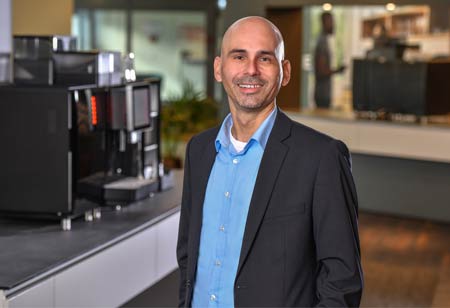

Thank you for Subscribing to Food Business Review Weekly Brief

The COVID-19 pandemic has had a profound impact on various industries, including the hospitality and retail sectors. As Europe emerges from the grip of the pandemic, coffee shops, hotels, and restaurants (HoReCa) face a new set of challenges in the aftermath of the crisis.
Changing consumer behaviors One of the most significant shifts observed during the pandemic is the change in consumer behaviors. Social distancing, remote work, and increased health concerns have altered the way people approach dining and shopping experiences. Many individuals have become accustomed to working from home and preparing meals themselves, which has led to a decline in foot traffic for coffee shops and restaurants. Furthermore, the increased popularity of food delivery platforms has challenged traditional dine-in models. If consumers get out for coffee or food, they expect a outstanding, remarkable experience. Coffee shops and HoReCa businesses must adapt to these changing consumer preferences by incorporating delivery services, expanding online presence, and focusing on takeout options – as well as create memorable experiences for their customers. The latter is even more true for the coffee shop industry. Many ‘locked down / stay home’ policies of companies to keep employees in their home offices has shown a remarkable trend of becoming a ‘home barista’ with a decently – and sometimes even highly-priced piece of home barista equipment/coffee machine. These people have invested money and effort in advancing their skills in preparing their own coffee at home. Many only platforms of premium roasters have seen that impact by the demand of premium roasted beans for these ‘home baristas’… Further premiumization Coffee shops specifically feel this additional impact of the ‘home baristas’ –a remarkable need of premiumization to set oneself apart. More sustainable drinks, more variety in the menu (e.g. more cold drinks, more different milk types such as alternative milks) as well as premium coffee beans and skilled and knowledgeable coffee preparation techniques are requested. During pandemic coffee shops have lost many loyal customers to the ‘remained open’ c-store and supermarket sectors, where many (smart) brands have started to offer a decent coffee with a respective price/value for their shoppers. The execution was catering towards self-service offerings in the store (social distancing, serve yourself, etc.) with premium looking coffee corners with fully automatic coffee machines. Sometimes even already tied together with loyalty programs with the respective supermarket- and/or subscription offerings. Thanks to premium fully automatic coffee machines, premium looking coffee corners and its coffee shop alike wide variety of menus, that segment could and still can execute without additional staffing. Due to the fully automatic machines they guarantee consistency of the offering - just a push of a button away -and are able to gain new customers that would go somewhere else during ‘normal’ times. Now, it is the time for coffee shops (and restaurants) to gain back these customers by higher premium offerings, better menu choices and even higher quality coffee beans.The manufacturers of fully automatic coffee machines have not been sleeping during pandemic either – new innovations have been developed and launched to cater for this new need of automatization